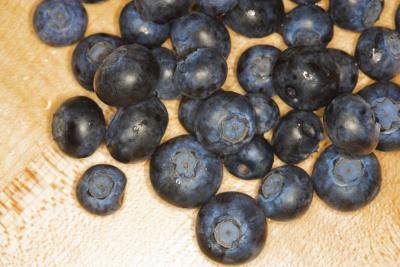
The experts at womenshealth.gov agree that breastfeeding provides many benefits to both baby and mother that formula feeding does not. Though many women may find breastfeeding to be an infinitely satisfying experience, it is a time-consuming endeavor that requires a new mother to remain as diligent in her diet and nutrition as she was when she was pregnant. Fortunately, there are many delicious, healthful foods that can help a new mom supply herself and her baby with the balanced nutrition they need.
Proteins
Eat adequate amounts of protein when you are nursing to supply the necessary nutrition to both your body and your child's body. Some women are concerned about consuming animal proteins when they are nursing due to growth hormones, additives and toxic levels of mercury and other heavy metals. If you are not a vegetarian, there is no need to eliminate animal proteins from your diet while nursing. Choose meat and poultry that has been organically fed and fish that is fresh-caught instead of farmed.
WebMd categorizes salmon as one of the best foods for breastfeeding mothers because it is packed with nutrition and an important type of fat called DHA. DHA assists in the development of your nursing baby's nervous system. In addition, studies suggest that the DHA in salmon may help prevent postpartum depression. Concerns about mercury consumption are causing some nursing mothers to avoid salmon and other nutritious seafoods; however, the FDA guidelines state that salmon is a low-mercury fish and is safe when consumed in amounts of no more than 12 oz. per week.
Lean beef is recommended for nursing mothers because it is iron-rich and a good source of vitamin B-12. Adequate amounts of iron and vitamin B-12 will keep you from becoming drained of energy while meeting the demands of caring for and nursing your infant.
Eggs are versatile and easy to cook. They are also one of the few foods that provide a natural source of vitamin D. Vitamin D will help keep your bones strong while you are breastfeeding and will help your baby develop strong bones and teeth.
Low-fat dairy foods such as yogurt, cheese and milk are also good sources of vitamin D and calcium. Eat three or more servings per day as part of your nutritional plan.
Legumes such as black beans, kidney beans, lentils and peanuts are a good source of protein and iron if you are a vegetarian breastfeeding mom, or if you simply want to add some variety to your diet. Legumes are also inexpensive, which can be advantageous when adjusting to the expenses of having a new baby.
Fruits and Vegetables
Blueberries are highly recommended for nursing mothers as a way to meet their two-serving daily requirement of fruit or juice. Blueberries not only provide you with important anti-oxidants, vitamins and minerals, but they also provide an energy-raising dose of carbohydrates.
WebMd states that nursing mothers need even more vitamin C than they did while pregnant. Oranges are a quick, portable snack that will give you that extra boost of vitamin C. For a mid-day pick-me-up, sip some orange juice when you sit down to nurse your baby in the afternoon.
Leafy greens are the healthiest type of vegetable a breastfeeding mother can eat. Spinach, Swiss chard, mustard greens, kale and broccoli are all a good source of vitamin A and a non-dairy source of calcium. Eating leafy greens can also soften bowel movements, which is a concern for some postpartum women.
Grains
You may be tempted to cut out carbohydrates when trying to lose excess baby weight, but whole-grain cereals, breads, pastas and brown rice will help you maintain your energy levels and provide the calories you need for producing an adequate supply of breast milk. Whole grains are also rich in folic acids, which are crucial to your baby's development during gestation and infancy. They also supply fiber, which can help you maintain regular bowel movements.
Water
Drinking at least 8 cups of water daily will prevent dehydration, a common problem for nursing moms, and will boost your ability to produce milk. Avoid sodas, coffee and tea while nursing as the caffeine in these drinks will become concentrated in your baby's system. Opt for water instead.
No comments:
Post a Comment